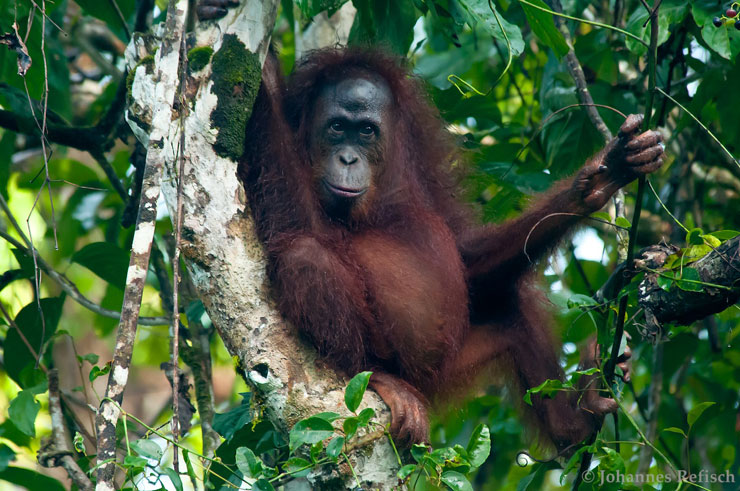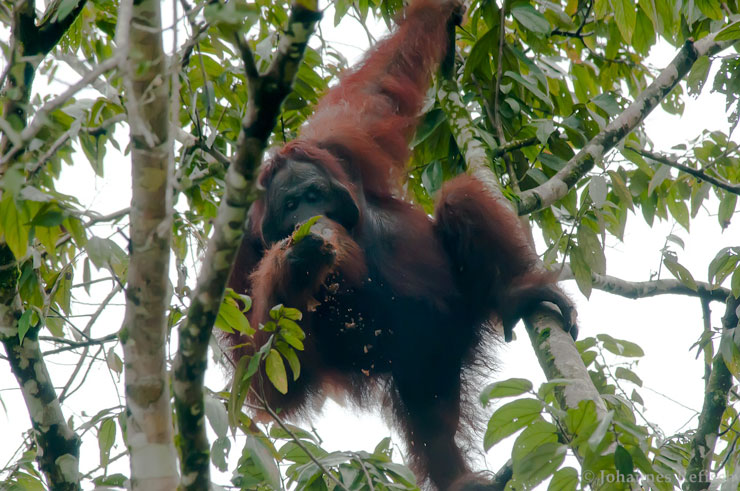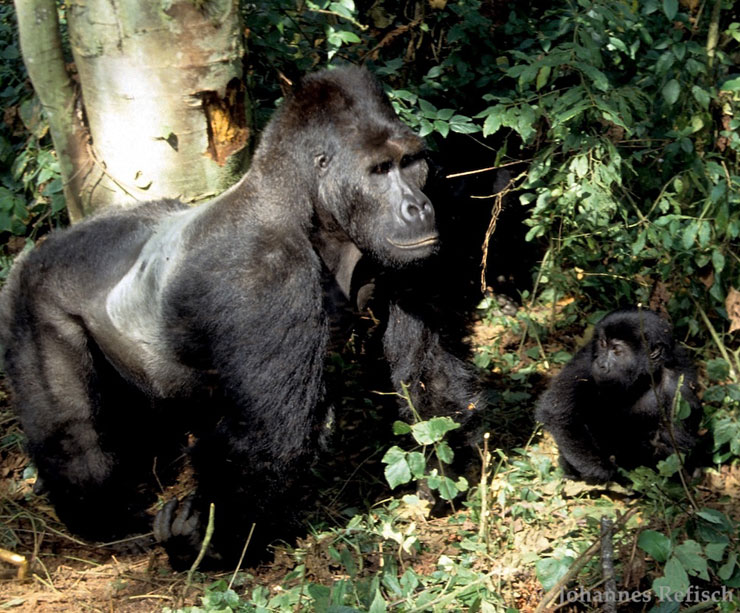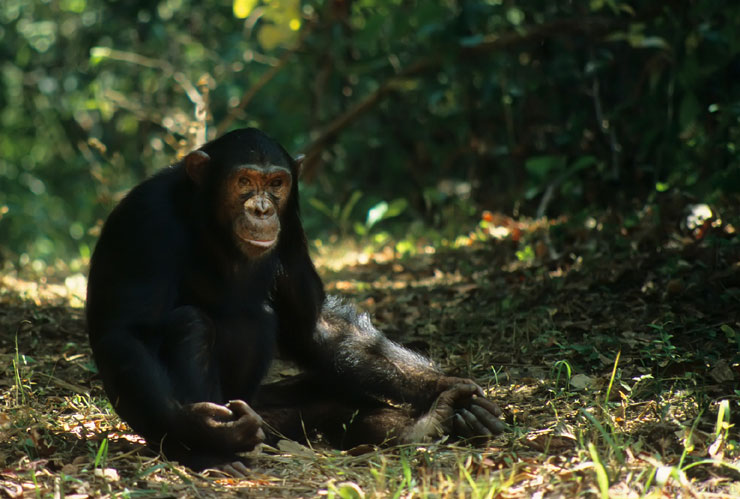3,000 Great Apes Lost Annually To Illegal Trade And Organised Crime
By Marianne de Nazareth
07 March, 2013
Countercurrents.org

When you see one baby Orangutan on the International pet market,or in a picture wrapped around a celebrity, just remember it took ten or more apes to die, to get that one animal.Its mother was the first one to get shot and a number of the others in the family group. It is an utter shame that we as humans are allowing this to happen to apes which are closest to us in their DNA. The illegal trade that sees almost 3,000 live great apes lost from the forests of Africa and Southeast Asia each year is increasingly impacting wild populations as links to organized crime grow stronger. Stolen Apes: The Illicit Trade in Chimpanzees, Gorillas, Bonobos and Orangutans is the first report to analyze the scale and scope of the illegal trade and highlights the growing links to sophisticated trans-boundary crime networks, which law enforcement networks find hard to control.
The report , which was produced by the United Nations Environment Programme (UNEP) through the Great Apes Survival Partnership (GRASP), estimates that a minimum of 22,218 great apes have been lost from the wild since 2005. They are either sold, killed during the hunt, or dying in captivity, with chimpanzees comprising 64 per cent of that number. The report examines confiscation records, international trade databases, law enforcement reports, and arrival rates from sanctuaries and rehabilitation centers between 2005 and 2011. E ach great ape listed in the illegal trade represents many more that died either during the capture or the trafficking process.

Over the past seven years, a minimum of 643 chimpanzees, 48 bonobos, 98 gorillas and 1,019 orangutans are documented to have been captured from the wild for illegal trade. These figures are just the tip of the iceberg, and extrapolating from this research the report estimates that at least 2,972 great apes are lost from the wild each year.
“The taking of great apes from the wild is not new, it has gone on for well over a century,” said Achim Steiner, UN Under-Secretary-General and UNEP Executive Director. “But the current scale outlined in this report underlines how important it is that the international community and the organizations responsible for conserving endangered species remain vigilant, keeping a step ahead of those seeking to profit from such illegal activities.”
All great apes are endangered and protected under the Convention on International Trade in Endangered Species (CITES) as Appendix I animals.Yet Stolen Apes reveals that the illegal trade has shifted from being a by-product of traditional conservation threats such as deforestation, mining and bush-meat hunting to a more sophisticated business driven by demand from international markets.
These markets include the tourist entertainment industry, disreputable zoos, and wealthy individuals who want exotic pets as status symbols. Great apes are used to attract tourists to entertainment facilities such as amusement parks and circuses. They are even used in tourist photo sessions on Mediterranean beaches and boxing matches in Asian safari parks. Since 2007, standing orders from zoos and private owners in Asia have spurred the export of over 130 chimpanzees and 10 gorillas under falsified permits from Guinea alone, an enterprise that requires a coordinated trading network through Central and West Africa . A safari park in Thailand admitted in 2006 that it acquired at least 54 orangutans from the forests of Borneo and Sumatra .

“Many of the great apes go into the markets of the Middle East and Asia, especially China.If an ape can fetch as much as 24,000 dollars, its obviously worth the risk with that kind of pay off for poachers.” said Doug Cress, coordinator of GRASP. “Great apes are extremely important for the health of forests in Africa and Asia , and even the loss of 10 or 20 at a time can have a deep impact on biodiversity. There are only half a million of them left and we are pushing them to the brink of extinction.”
Johannes Refisch, programe manager of GRASP said, “ Wildlife tourism helps to save the primates and 50% of the earnings go back into the country. Land use change is also a big reason for the loss of the primates and therefore conservation backed with tourism helps the Great Apes to be able to pay back for themselves. Great Apes have no boundaries and don't care which country they live in. So there has to be co-operation between countries to save them and stop the poaching.”
The illicit trade is increasingly linked to organized crime, and sophisticated trans-boundary networks now move great apes along with other contraband such as ivory, arms, drugs, rhino horn and laundered money. A smuggler recently apprehended in Cameroon was transporting a live chimpanzee wedged between sacks of marijuana.
Profit margins are high for the criminal networks. The report found that a poacher may sell a live chimpanzee for US$50, whereas the middleman will resell that same chimpanzee at a mark-up of as much as 400 per cent. Orangutans can fetch US$1,000 at re-sale, and gorillas illegally sold to a zoo in Malaysia in 2002 reportedly went for US$400,000 each.
“The illegal trade in apes has little to do with poverty,” said Ofir Drori, founder of the Last Great Ape Organization in Cameroon . “It is instead generated by the rich and powerful.” Law enforcement efforts lag far behind the rates of illegal trade. Only 27 arrests were made in Africa and Asia in connection with great ape trade between 2005 and 2011, and one-fourth of the arrests were never prosecuted.
The report also found that the loss of natural great ape ranges in Africa and Asia helps drive the illegal trade, as it promotes contact and conflict between apes and humans. Great ape habitat is being lost at the rate of 2-5 per cent annually. The report states that by 2030 less than 10 per cent of the current range will remain on current trends.
In Southeast Asia , the conversion of rainforest for agro-industry is directly linked to the illegal trade, as orangutans are flushed from the forest and end up being captured, killed, or trafficked. Extractive industries such as logging, mining, and petroleum exploration create transportation and trade routes that facilitate the illicit traffic of great apes.

Recommendations suggested by report
As well as highlighting the scale of the problem and the worrying trend of increasing organization of the trade, the report recommends measures to reduce decline of ape populations:
· Establish an electronic database that includes the numbers, trends and tendencies of the illegal great ape trade, and monitor arrests, prosecutions and convictions as a means of assessing national commitment.
· Target organized crime by investigating traffickers and buyers, establishing trans-national criminal intelligence units targeting environmental crime to ensure that intelligence is compiled, analyzed and shared with national police forces, customs and INTERPOL, and prosecuting the accused without mercy.
· N ational and international multimedia campaigns should be used to eliminate the trade/ownership of great apes and emphasize stringent laws.
· DNA-test all confiscated great apes and return to country of origin, if possible, within eight weeks of confiscation.
· Review national laws and penalties relating to the killing and trafficking of great apes and support efforts to forcefully implement and strengthen those laws.
· Increase enforcement of protected areas, to both reduce illegal trade in great apes and to protect their habitat.
The Apes are fighting for the same forests and habitat that we are cutting down and destroying.But the issue of trafficing in them like commodities needs to be halted completely. Their fate echoes our fate and if we can't save them and co-exist, we have no hope for ourselves.
(The writer is a freelance environment and science journalist and adjunct faculty, St. Joseph 's PG College of Media Studies and a registered PhD scholar)
Photo credits --- Dr. Johannes Refisch GRASP Programme Manager
Comments are moderated


